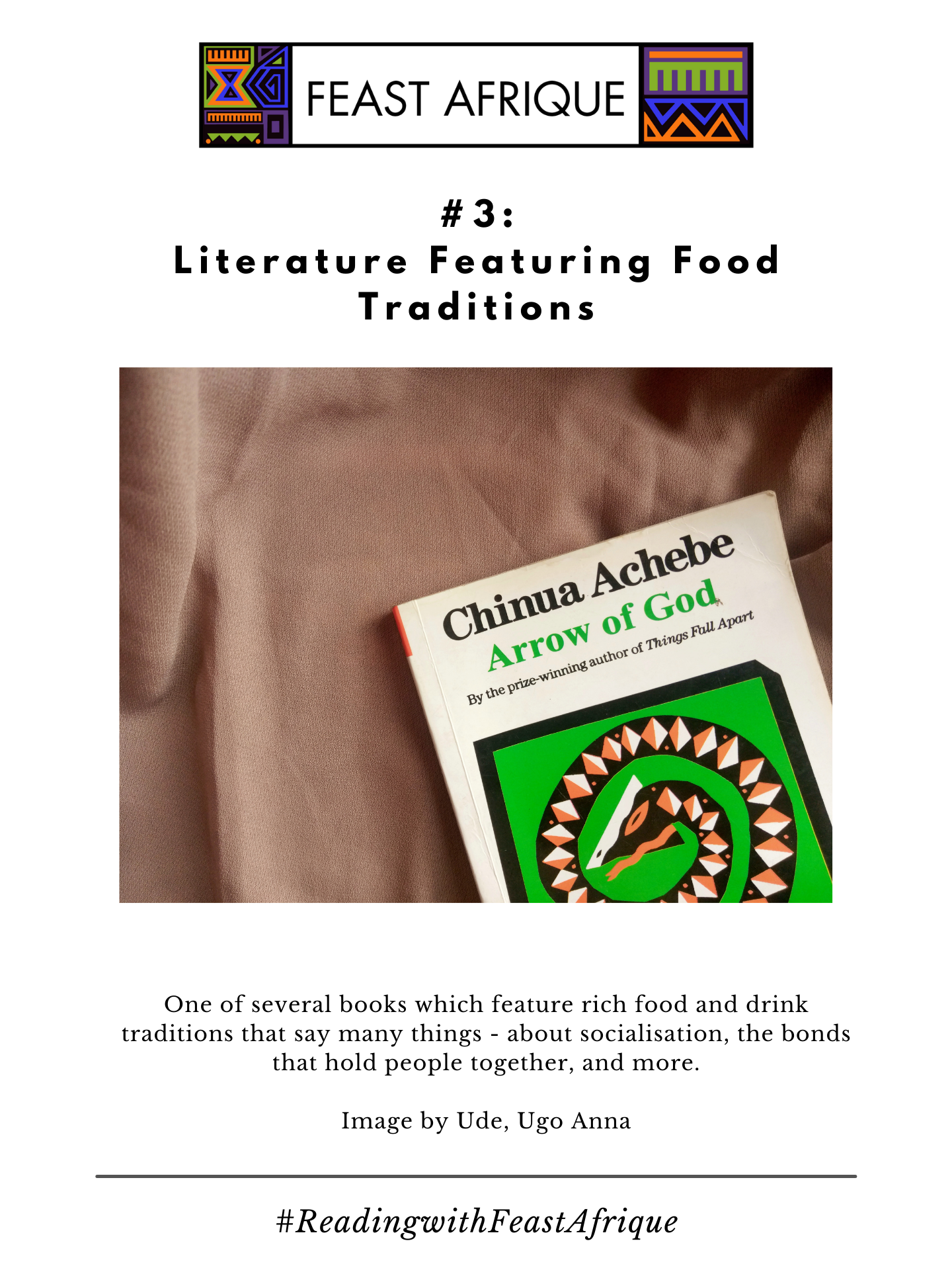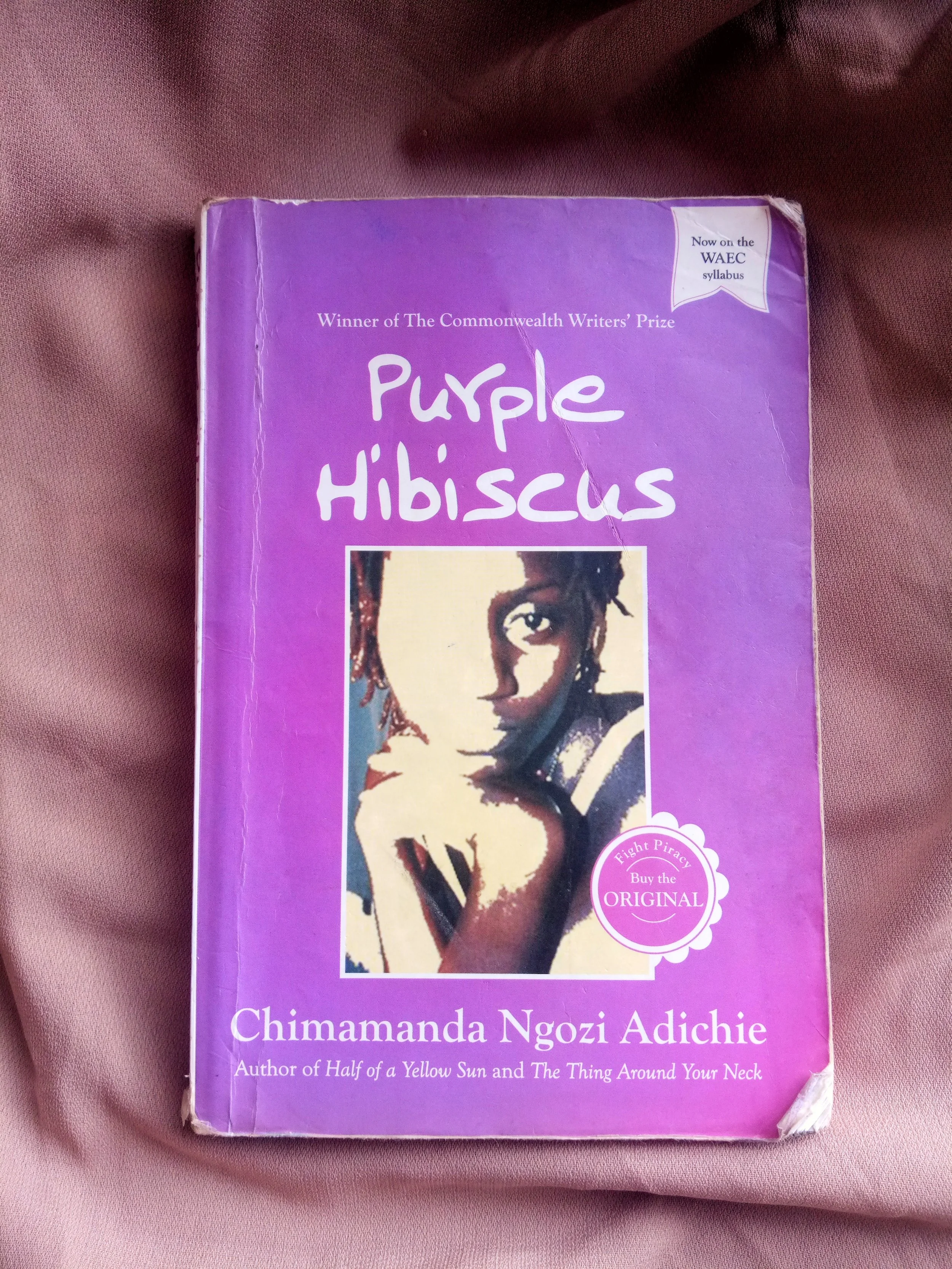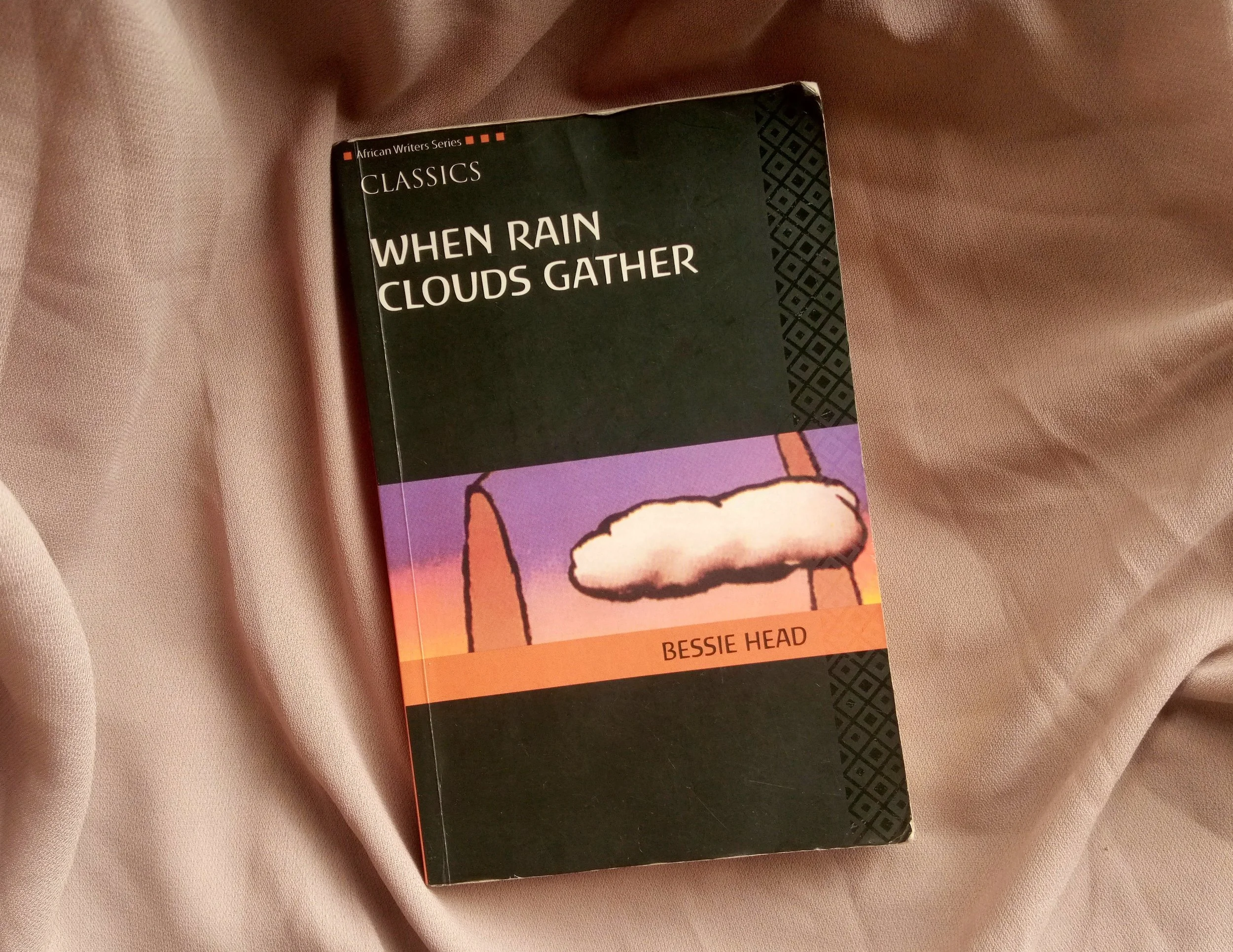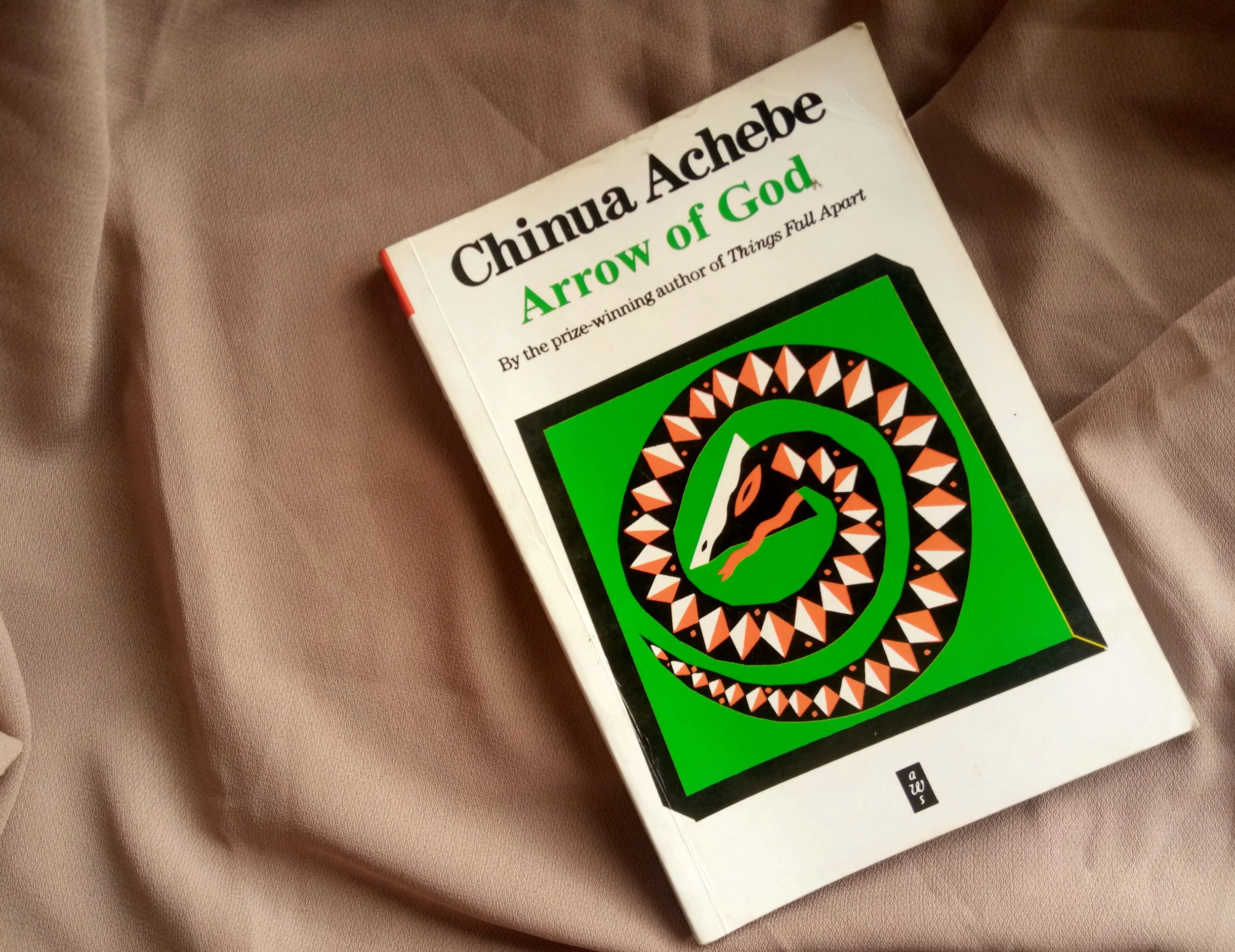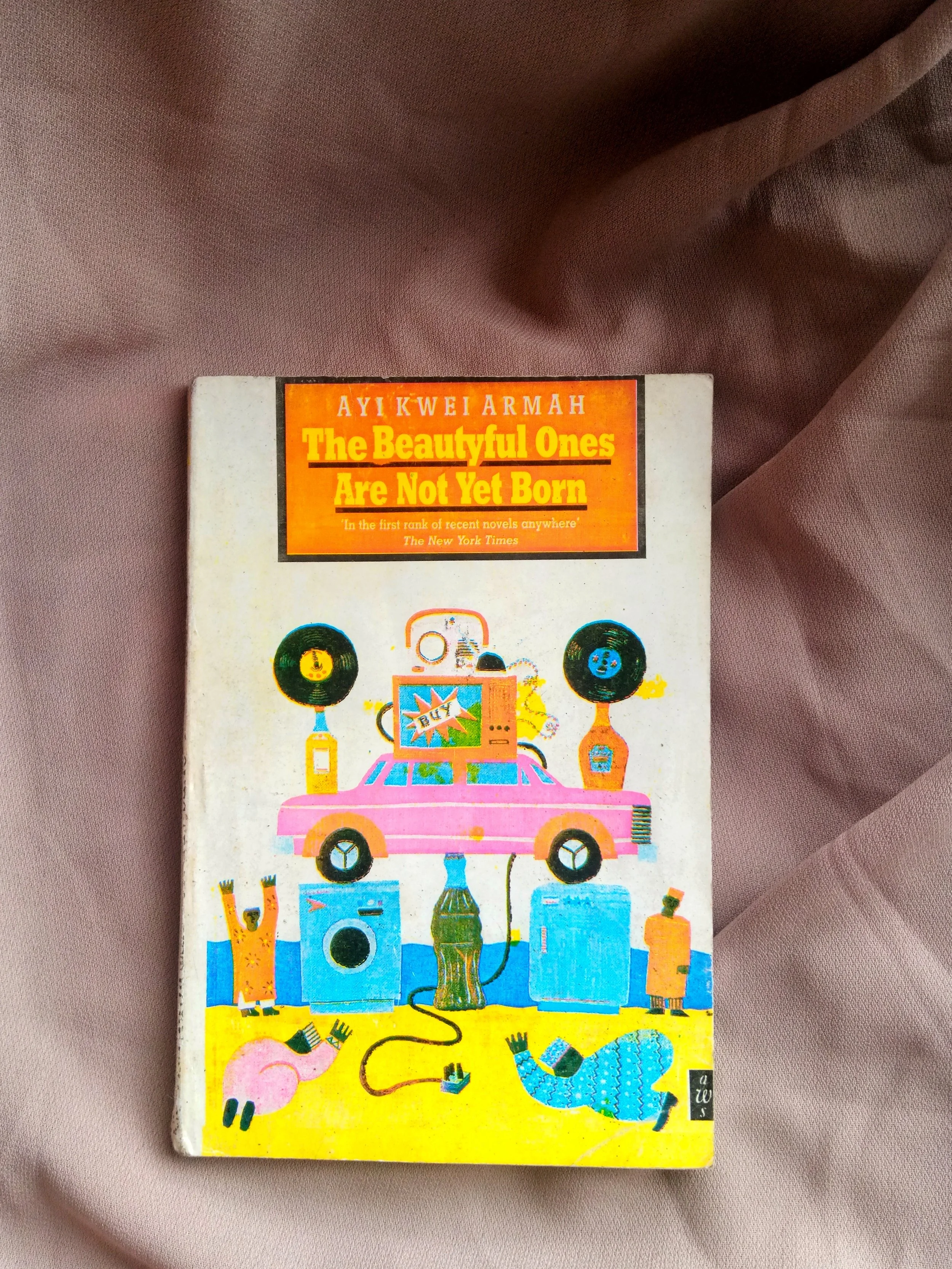#3: Literature Featuring Food Traditions
This commissioned post is by Ude, Ugo Anna of Gushing Torrents (on instagram) - it explores a number food traditions in a selection of books.
Ude, Ugo Anna is an English Major at the University of Lagos. She is interested in social change, identity and culture so she contributes to Nunritecine; a digital magazine documenting the literature, art and culture of Niger Deltans. Ugo also reads and reviews African Literature on Instagram @gushing_torrents and has works in Literandra and Kurating Magazine.
Food in literature takes on vibrantly interesting forms. It may appear as recipes, foodstuff, farming practices, cooking roles and patterns, food service and taboos and interestingly, food metaphors and proverbs. While works like Chimamanda Ngozi Adichie's Purple Hibiscus are fraught with meal combinations, Chinua Achebe with his Things Fall Apart and Arrow of God makes a case for, perhaps, the most important part food plays in communities as displayed in literature: social cohesion. When the oldest elder of Okonkwo’s umunna in Things Fall Apart says:
A man who calls his kinsmen to a feast
does not do so to save them from starving.
They all have food in their own homes…
We come together because it is good
for kinsmen to do so. (pg. 118)
He recognizes the importance of feasts to the strengthening of bonds, maintenance of unity and the creation of social ties. Since literature and food connect at the point of mimesis; that is where works of writing mirror real life customs and cultures, it is important that this bonding and connection be represented well. Using select African novels, including Chinua Achebe's Things Fall Apart, this paper will examine how these food recipes, food patterns, eating behaviours and imagery play a role in customs and festivals, set a standard for friendly behaviour (phatic communication) and draw a line between acceptable or punishable character (taboos).
Feasts and Social Cohesion
Social cohesion refers to "strong social bonds infused with a sense of togetherness" occurring between two people, at familial or at community level. This sense of togetherness is facilitated by shared identity, principles, and as can be seen in works of literature, food and food customs. In the excerpt above, Okonkwo has just called a feast to thank his mother’s kinsmen in Mbanta for their goodness to him during his seven-year exile. Apart from this being an expression of gratitude, it is a mark that Okonkwo understands the importance of closely-knit relationships. Similarly, in Chimamanda Ngozi Adichie's Purple Hibiscus in what is described as "the yearly migration of the Igbos," (pg. 61) Kambili's family travel back home for the Christmas holiday. During this festive period, their family and wives of the members of the umunna and community customarily cook in bigger cast iron pots for all visitors. (p. 64) Since sharing food may signify friendship, refusal to share food may be regarded as a sign of stark enmity and distrust as can be seen between the villages of Okperi and Umuaro in Arrow of God. Glaringly, this sentiment of throwing large feasts to signify friendship and unity is an integral part of the Igbo and many a Nigerian cultures that Chinua Achebe brings to the fore.
Closely related to social cohesion is familial connection. In Chimamanda's Purple Hibiscus, the reader can sense Jaja and Kambili's telepathy when they sign to each other, "I wish we still had lunch together." The change in the food patterns of the siblings obviously affects their relationship as it doesn’t allow them spend time alone. Coincidentally, the pivotal conflict in the novel occurs at the dining table. Jaja refuses to compliment his father's new drink and leaves the table before he should. This marks the start of a period of disconnection between father and children (p. 21-22). Likewise in Camara Laye's African Child, members of the family meet only at mealtime thereby allowing the children observe the workings of their household. Here, food serves as a bond between members of the household. Furthermore, food may function as an icebreaker. In Samuel Monye's Give Us Each Day, Seun Ajimobi is lost in Libya after a failed trafficking mission and months of spending time as a child-detainee in prison. He finds that he must survive anyhow. When he tries to steal food in the market, Seun is beaten. Hakeem, a street kid, offers Seun a piece of bread. This offering of food symbolizes friendship and security to Seun who is lost. Likewise, in Bessie Head's When Rain Clouds Gather, Makhaya; South African political refugee in Botswana wins the trust of the women of Golema Mmidi by refusing to turn down a plate of goat meat and sour milk porridge even if eating them disgust him.
Food for Phatic Communication
Beyond cohesion, offering food may serve as a form of phatic communication as equally as handshakes and making small talk. Kolanuts in Igbo culture as depicted in Things Fall Apart and Arrow of God are offered as frequently as handshakes and usually accompany pleasantries. Kolanuts serve a socio-pragmatic function and are used in conversations by men where the older man breaks the kolanut and shares it to the other. Again, when kolanuts are rejected as is with the case with Akukalia of Umuaro who rejects kolanuts twice from the men of Okperi (pg. 21-22) in Arrow of God, feelings of hostility are created or cemented as equally as when handshakes are rejected and greetings not returned. This refusal of a kolanut is described in the same novel as "rebuffing the token of goodwill between host and guest."
Food, Identity, Respect, and Patriarchal Systems
Next, food service and cooking roles in literature may serve as pointers to the hierarchical, respect and patriarchal systems existent in the societies depicted in the work of writing. Serving palm wine to Nwakibeya was described by Okonkwo in Things Fall Apart as "paying respect to the great" thereby establishing Nwakibeya as greater and wealthier than he, Okonkwo. (pg. 14) Likewise, in Camara Laye's African Child, the largeness of the father's food portion is symbolic of his superiority over his household and only when he offers extra to a child does the child have the right to take from it. Customarily, older people receive larger helpings of food, meat or drink or are offered the meal first before others. When these hierarchies are neglected, the narration usually takes on a disdainful tone signaling the behaviour as inappropriate, disrespectful or a taboo. This happens with Papa Nnukwu in Purple Hibiscus who eats a plate of "flaky fluffy and watery soup" (pg. 72) while his son, Eugene eats dinner of jollof rice, ngwogwo and fried azu (pg. 40)
Every woman of Umaro had a bunch of pumpkin leaves
in her right hand;
anyone who had none was a stranger (pg. 68)
The ceremony above is the Feast of Pumpkin Leaves. Immediately after this narration in Arrow of God, the wives of Nwaka's household walk into the village square dressed in ivory and velvet as never seen before. This expensive attire distinguishes them as women of high standing and sets them apart from the rest. In comparison, the bunch of pumpkin leaves (ugwu) in the hands of the women of Umaro are equated with the ivory of Nwaka's household since they serve the same purpose, separating one group of persons from another. Here, the bunch of pumpkin leaves serves the purpose of stratification.
Gender roles also distinguish between males and females and exist in cooking and food preparation in many societies. These cooking roles and strict household rules that permit women alone to make meals establish the societies depicted in works of literature as patriarchal ones. In J.P Clark's The Wives Revolt, the women of the village leave as a form of rebellion and the men in the village are ignorant of how to navigate cooking meals for themselves in the kitchen. This lends credence to the fact that in the society depicted, like many societies, cooking is a task commonly carried out by women. Considering how cooking roles and patterns may strengthen patriarchy, the first case is Okonkwo's description of yam as the "king of crops and a man's crop" while cocoyams, beans and cassava are described as "women's crops." Again, in Okonkwo' household, it is the duty of his wives to make his meals and for his daughters to serve him. Nwafo, Okonkwo's young son teases his sister, Obiageli, about women being unable to grow a beard because of "lick lick lick" which is the act of tasting soup from the cooking spoon. Nwafo's statement corroborates the pattern of the household; women make the meals as it is their role. Similarly, in Nwakibeya's household, his first wife, Anasi, will only drink from the horn of palm wine after all men present have drunk twice notwithstanding their age. Finally, in African Child, the narrator describes cooking as "a woman's job" and his mother and sisters as "eating from a separate bowl" as the father and his male apprentices. Food and cooking roles may point to patriarchal systems as can be seen in the cases mentioned.
The Participation of Food in Festivals
As a matter of fact, the participation of food in festivals and traditional practices is crucial to many societies as seen in works of literature. The opening conflict in Arrow of God is Ezeulu's waiting for the moon in order to kickstart the New Yam Festival. Ezeulu upon seeing the moon must eat a whole roast yam without leaving a piece for even his singing daughter, Obiageli. Allowing anyone have a taste of the yam before he is done with the ritual would be disastrous. We also see Papa Nnukwu in Purple Hibiscus throw a morsel of garri to the soil "asking Ani the god of the land to eat with him" as part of a meal ritual. Additionally, food is present in marriages, meetings and ceremonies and families display wealth by the amount of food they are able to serve their guests during these ceremonies. One can see this in Ben Okri's The Famished Road. Azaro's father continually throws feasts and even takes drinks on credit to keep up an appearance before his guests.
Beyond festivals, food customs appear in many forms. For instance, it is customary to give visitors food and take food gifts along on travels. Kambili reports seeing cars filled with yams, rice and crates of drinks while travelling to the village (pg. 62) since it is customary that one takes food items with them for the Christmas holidays or any visits to the village at all. Again, Mama and Sisi cook moin-moin, jollof rice and fried chicken for the members of Our Lady of the Miraculous Medal on their visit to their home. One sister mentions having eaten anara (garden eggs) in another home. From this we can deduce that visitors are almost always served meals.
As mentioned earlier in this paper, works of literature are fraught with food imagery. Chimamanda Ngozi Adichie's Purple Hibiscus makes mention of tea, biscuits, boiled yam and peppery greens, jollof rice, ngwogwo (goat meat peppersoup) and fried azu (fish), bread and okpa (cake made with Bambara nuts and palm oil), ofe nsala (soup made with yam and utazi leaves) okporoko (stockfish), garri, beans and plantain. In the novel, there is mention of how thinly yam peels should be cut in order to avoid wastage. Comparably, in When Rain Clouds Gather, potatoes, roast chickens, hard sorghum cakes, powdered milks and tea leaves, goat meat cooked with curry, oil made from melting animal fats are mentioned. 'Borbor', which is beans cooked with oil and tomatoes, is mentioned in Ayi Ama Kwei's The Beautyful Are Not Yet Born.
Finally, food features in proverbs and songs in many African cultures and works of literature. Perhaps the most known quote by Chinua Achebe is his "proverbs are the palm oil with which words are eaten." Similarly, in his Things Fall Apart, Okonkwo is described as one "whose palm kernel nuts were cracked by benevolent gods." One again in his Arrow of God, Obiageli sings to pacify a crying child promising that his mother will "prepare a stew of uziza, ofuziza and watery peppersoup."
In all, food as represented in literature extends beyond a means of sustenance to becoming an integral part of culture, a participant in rituals, customs and rites and a means of social cohesion.
Works Cited
Achebe, Chinua. Arrow of God. Heinemann African Writers Series, Heinemann Educational Books Ltd., 1974.
Achebe, Chinua. Things Fall Apart. Heinemann, 1958.
Ayi Kwei Armah. The Beautyful Ones are Not Yet Born. Heinemann African Writers Series, Heinemann Educational Books Ltd.,1988.
Chimamanda Ngozi Adichie. Purple Hibiscus. Farafina Books. Kachifo Limited, 2006.
Head, Bessie. When Rain Clouds Gather. Heinemann African Writers Series, Pearson Education Limited, 2008.
Laye, Camara. The African Child. Fontana Books, May 1981.
Okri, Ben. The Famished Road. Safari Books Limited & Spectrum Books Limited,1992.
"What is Social Cohesion?" The Scanlon Foundation Research Institute. https://scanloninstitute.org.au/what-social-cohesion. Accessed 1 Oct. 2021.

